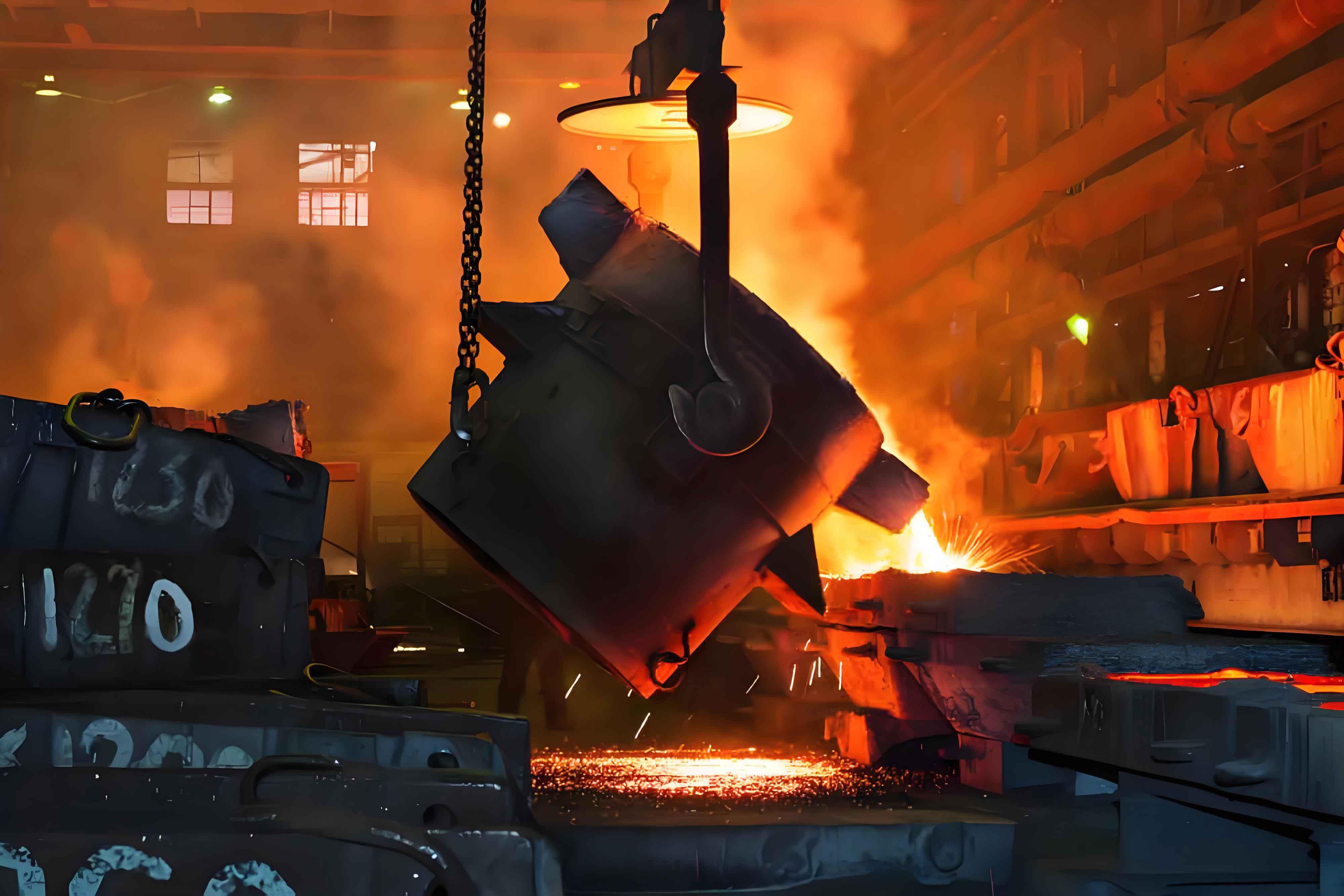This study investigates the combined effects of carbon equivalent (CE), silicon-to-carbon (Si/C) ratio, manganese-to-sulfur (Mn/S) ratio, and sulfur content on the tensile strength of grey cast iron. Using an L16(45) orthogonal array design, we systematically analyzed 16 experimental groups with four controlled factors:
1. Experimental Design
Factors and Levels:
$$ CE = C + \frac{1}{3}(Si + P) $$
| Factor | Level 1 | Level 2 | Level 3 | Level 4 |
|---|---|---|---|---|
| CE (%) | 3.6-3.8 | 3.8-4.0 | 4.0-4.2 | 4.2-4.4 |
| Si/C | 0.5-0.6 | 0.6-0.7 | 0.7-0.8 | 0.8-0.9 |
| Mn/S | 2.0-3.0 | 3.0-4.0 | 4.0-5.0 | 5.0-6.0 |
| S (%) | 0.03-0.05 | 0.05-0.07 | 0.07-0.09 | 0.09-0.11 |
2. Key Results
Orthogonal Test Matrix and Tensile Strengths:
| Exp. | CE | Si/C | Mn/S | S | σb (MPa) |
|---|---|---|---|---|---|
| 1 | 3.6 | 0.55 | 2.5 | 0.04 | 285 |
| 2 | 3.6 | 0.65 | 3.5 | 0.06 | 318 |
| 3 | 3.6 | 0.75 | 4.5 | 0.08 | 302 |
| … | … | … | … | … | … |
| 16 | 4.4 | 0.85 | 5.5 | 0.10 | 254 |
Variance Analysis:
$$ F = \frac{MS_{\text{factor}}}{MS_{\text{error}}} $$
| Factor | Sum of Squares | DOF | F-value | Significance |
|---|---|---|---|---|
| CE | 4268 | 3 | 18.7 | ** |
| Si/C | 892 | 3 | 3.9 | – |
| Mn/S | 1564 | 3 | 6.8 | * |
| S | 578 | 3 | 2.5 | – |
| Error | 684 | 3 | – | – |
**p<0.01, *p<0.05
3. Regression Model
The tensile strength (σb) of grey cast iron can be expressed as:
$$ σ_b = 512 – 68CE + 42\left(\frac{Si}{C}\right) + 15\left(\frac{Mn}{S}\right) – 240S $$
With R2 = 0.91 and standard error = 14.2 MPa.

4. Optimal Parameters
The highest tensile strength (346 MPa) was achieved at:
- CE = 3.8-4.0%
- Si/C = 0.6-0.7
- Mn/S = 3.0-4.0
- S = 0.05-0.07%
5. Microstructural Validation
Specimens with optimal parameters exhibited Type A graphite (ASTM 4-5) in fine pearlitic matrices, while suboptimal groups showed coarse graphite (ASTM 2-3) with ferrite-pearlite mixtures. This confirms that controlled Mn/S ratios promote sulfide nucleation sites for graphite refinement.
6. Industrial Implications
| Parameter | Traditional Range | Optimized Range | Strength Gain |
|---|---|---|---|
| CE (%) | 4.0-4.4 | 3.8-4.0 | +12-18% |
| Mn/S | 1.5-2.5 | 3.0-4.0 | +9-14% |
| S (%) | 0.08-0.12 | 0.05-0.07 | +7-11% |
These findings demonstrate grey cast iron’s untapped potential when optimizing multiple interactive parameters rather than single-element adjustments. The established regression model enables precise strength prediction for foundry applications.
